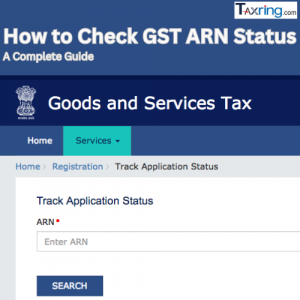
Income Tax Audit Under Section 44AB of the Income Tax Act 1961
Section 44AB of the Income-tax Act of 1961 specifies the procedures for conducting a tax audit of a corporation or entity. The tax audit confirms that the individual provided complete and accurate information about his income, deductions, and taxes. This will be carried out by a chartered accountant. In order to be audited by a Chartered Accountant, the entity must maintain accurate books of accounts. The books of accounts must follow the norms and restrictions outlined in the Income Tax Act of 1961.
What is Section 44AB of the Income Tax Act, 1961?
Section 44AB of the Income Tax Act of 1961 specifies the provisions for tax audits. This section outlines the standards for the taxpayer's correct bookkeeping and financial record-keeping practices. This helps to keep accurate records of tax, income, and taxpayer deductions. This section helps to reduce fraudulent behaviors. The audit is conducted by a practicing chartered accountant. The audit report and income tax return are filed with the income tax department
What is the Income Tax Audit under Section 44AB?
A tax audit is an inspection and assessment of an organization's books of accounts for business or profession. A tax audit examines transactions involving income, expenses, deductions, and the organization's taxes. It makes it easier to file an income tax return for tax purposes.
Who is liable for a tax audit under Section 44AB?
Everyone who earns money from a business or profession is required to keep books of accounts and have a tax audit performed, with the exception of those who have chosen presumptive taxation under sections 44AD, 44ADA, 44AE of the Income Tax Act of 1961 or whose turnover exceeds specific thresholds.
Taxpayers that need a tax audit are:
- Provided, if the (a) aggregate of all amounts received, including the amount received for sales, turnover, or gross receipts during the previous year, in cash, does not exceed five percent of the said amount; and
- (b) Aggregate of all payments made, including amount incurred for expenditure, in cash, during the previous year does not exceed five percent of the said payment: Threshold limit would be 10 crores instead of 1 crore (from 1/4/21, for FY 2021-22 - 5 crores)
- An individual involved in the profession with a gross receipt that exceeds Rs. 50 lakh during the previous year.
- Any assessee who has opted for sections 44ADA and 44AD but claims his income is lower than the profits computed under presumptive taxation and income exceeds the taxable amount according to the Income Tax Act.
- Any assessee who has opted for sections 44AE, 44BB, 44BBB but claims his income lower than the profits computed under the said sections in any previous year.
|
|
What Are the Objectives of an Income Tax Audit?
The main objectives of conducting an income tax audit are:
1.Ensure Accurate Bookkeeping:Validate that financial records are properly maintained and free from fraudulent activities, with certification from an auditor.
2.Identify and Report Discrepancies: Detect and document any inconsistencies or errors found during the thorough examination of financial statements.
3.Verify Tax-Related Information: Confirm details such as tax depreciation and compliance with income tax laws and regulations.
4. Simplify Tax Calculations: Make the computation of taxes and deductions more straightforward through detailed auditing processes.
5.Authenticate Tax Returns: Verify that the information reported in the taxpayer's income tax return is accurate, including income, taxes, and deductions.
These objectives ensure transparency, accuracy, and compliance in financial reporting and tax filing.
What is Included in a Tax Audit Report?
A tax audit report provides a comprehensive summary of the audit process and its outcomes. Governed by Rule 6G of the Income Tax Rules, this report is prepared and electronically submitted by a chartered accountant. It adheres to the specifications outlined in Form 3CD.
The tax auditor issues the report in one of two formats, depending on the audit requirements:
- Form 3CA: Used when the auditing of books is required by other laws for a business or professional entity.
- Form 3CB:Used when auditing is not mandated by other laws but is performed at the taxpayer's discretion.
This structured reporting ensures accuracy and compliance with income tax regulations.
Income Tax Audit Deadlines
For the Financial Year (FY) 2023-24, the deadlines for completing an income tax audit are as follows:
-General Taxpayers: September 30, 2024.
- Taxpayers Subject to Transfer Pricing Audit: October 31, 2024.
Procedure for Furnishing Tax Audit Reports
Tax audit reports must be submitted online by the tax auditor using their login credentials under the 'Chartered Accountant' role. Taxpayers need to add their Chartered Accountant's details to their portal as well.
Once the audit report is uploaded by the tax auditor, the taxpayer must review and either accept or reject it through their portal. If the report is rejected, the process must be repeated until the report is accepted.
The final deadline for filing the income tax audit report is:
- For International TransactionsOctober 31 of the assessment year (the year following the financial year).
- For Other Taxpayers: September 30 of the assessment year.
Ensure that the tax audit report is filed by the due date for the income tax return, which is:
- For International Transactions: October 31 of the assessment year.
- For Other Taxpayers: September 30 of the assessment year.
What Happens in Case of Non-Compliance with Income Tax Audit?
Failure to comply with a mandatory income tax audit can result in penalties for the taxpayer. The penalties for non-compliance are:
- 0.5% of Total Sales, Gross Receipts, or Turnover
- ₹1,50,000
However, if the taxpayer can demonstrate a reasonable cause for the failure, the penalty may be waived under Section 271B.
Acceptable Reasons for Non-Compliance Include
- Natural Disasters: Events such as floods, earthquakes, or other calamities.
- Auditor Resignation: Delays caused by the resignation of the tax auditor.
- Labor Disputes: Prolonged strikes or lockouts affecting the business.
- Loss of Records:Loss of financial records due to circumstances beyond the taxpayer’s control.
- Health Issues or Death:Physical inability or death of the partner responsible for managing the accounts.
To avoid penalties, ensure timely compliance and provide evidence of any reasonable cause if applicable.
Penalties for Failing to File a Tax Audit Report
Failing to file a tax audit report when required can lead to several significant penalties and consequences. These vary based on jurisdiction and specific tax laws but generally include:
- Monetary Penalties:Tax authorities may impose substantial fines, often calculated as a percentage of the tax liability or income subject to audit.
- Disallowance of Deductions: Certain deductions or exemptions on your tax return may be disallowed, resulting in increased tax liability.
- Interest Charges:Unpaid tax liabilities may accrue interest, with rates and calculation methods varying by jurisdiction.
- Legal Action: Repeated non-compliance or severe cases may lead to legal action, including fines, additional penalties, or even criminal charges.
- Loss of Tax Benefits:Failure to file may result in forfeiture of eligible tax benefits or incentives.
- Tax Audit Trigger: Not filing a required tax audit report may prompt a comprehensive tax audit, which can be time-consuming and costly.
- Impact on Credit Rating: In some regions, tax authorities may report unpaid taxes to credit agencies, adversely affecting your credit score.
- Injunctions and Seizures:In extreme cases, tax authorities may obtain court orders to place liens on assets, garnish wages, or seize property to recover unpaid taxes.
To avoid these consequences, ensure timely and accurate filing of all required tax audit reports.
Tax Audit Requirement and Compliance
If a taxpayer is required to have their books audited under other laws, such as a statutory audit mandated by company law, they do not need to perform a separate audit specifically for tax purposes. Instead, they must ensure that the audit report is filed in compliance with income tax regulations before the return filing deadline.
Conclusion
As a taxpayer, you must adhere to the provisions of Section 44AB of the Income Tax Act, 1961. This section requires all taxpayers to have their books of accounts audited and to file the audit report. This ensures that income, deductions, and taxes are accurately reported and reflect the taxpayer’s financial activities.
Read also




